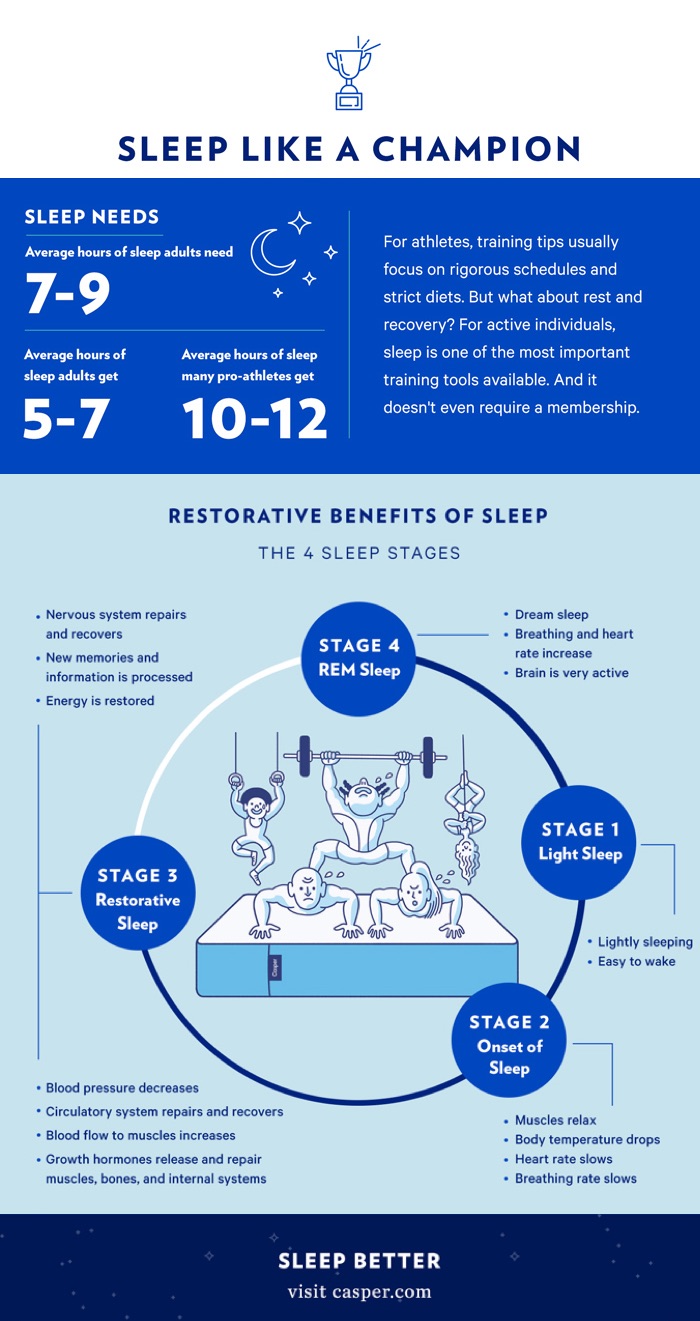This week, TargitFit is pleased to bring you an informative health and fitness article by Kevin Graham:
Modern elite athletes are aware that physical conditioning and diet/nutrition are crucial for achieving their optimal fitness performance. More often than not, however, individuals will overlook an equally important training aid: their sleep. In the past, we previously discussed 7 tips for better sleep. Wonder why is sleep so important for active people?
Five Components of Athletic Readiness:
- Nutrition
- Hydration
- Mental Preparation
- Conditioning
- Sleep
Five Impacts Sleep has on Athletic Performance:
- Improved Reaction Times
- Increased Endurance (short & long-term)
- Stronger Accuracy / Improved Timing and Reaction
- Fewer Mental / Human Errors (increased motivation, memory, focus)
- Reduced Chance of Injury
3 Ways to Increase Sleep Quality:
1–Establish and Revisit Familiar Routines:
Stretching, meditation, and yoga are active ways to relax the muscles as well as your mind. The fitness app Apptiv offers guided audio sessions that are easily followed on a phone from your bedside. Before turning in, always consider ways to physically and mentally unwind. Combatting a busy or wandering mind can be the recipe for better and longer sleep. Regularity around bedtime routines makes falling asleep feel more habitual rather than forced. For some people, it could be activities like reading or watching television while others prefer tea and a warm bath.
2–Supportive Sleeping Essentials:
Well-known statistics show that we spend ⅓ of our lives asleep. Unfortunately, we often spend far too many years on over-worn and overused mattresses. The design and technology behind innovative foam mattresses provide sleepers with zoned levels of support through thoughtful foam layering. Softer foam under your shoulders and firmer foam support under your hips/core helps to achieve balance and proper spinal alignment while you sleep. Along with support, a foam mattress is designed with materials that promote breathability which stay cooler at night. A cool yet comfortable temperature is an important part of being able to enter deeper stages of sleep and achieve the best quality of rest to take on tomorrow’s workout!
3–Optimal Sleep Temperature:
In general, the recommended bedroom temperature range is between 60 – 67 degrees Fahrenheit. To fall asleep, our body temperature decreases to initiate deeper sleep cycles. A thermostat set too high or too low can hinder one’s ability to get to get the restorative rest needed.
For more information on rest and recovery check out this savvy guide below:
Kevin Graham is a freelance writer from New York. He is a mindful individual who enjoys running as much as he loves relaxing. Kevin is focused on finding the ultimate balance in his day to day lifestyle.

